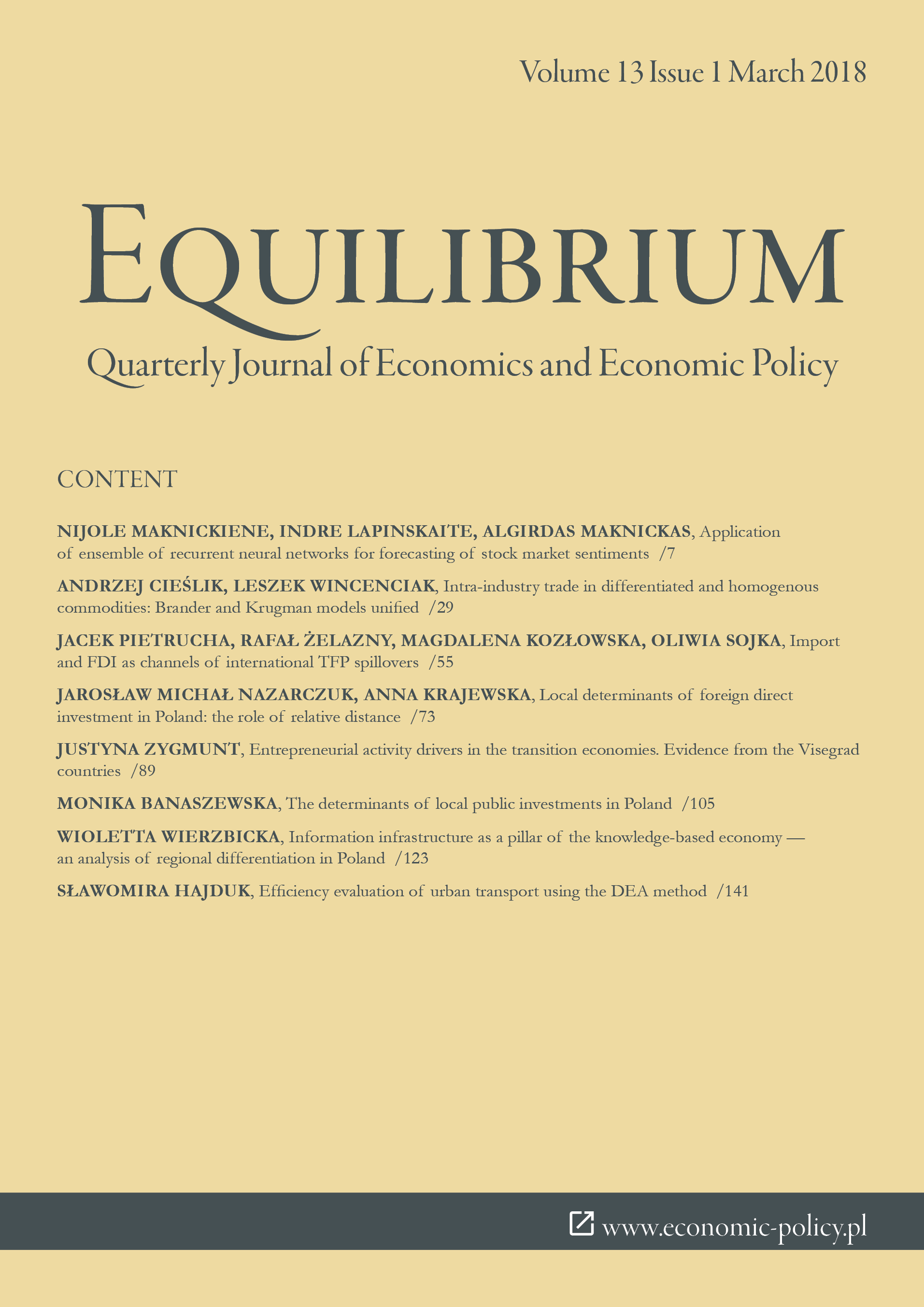Entrepreneurial activity drivers in the transition economies. Evidence from the Visegrad countries
Entrepreneurial activity drivers in the transition economies. Evidence from the Visegrad countries
Author(s): Justyna ZygmuntSubject(s): Economy, Geography, Regional studies, Business Economy / Management, Methodology and research technology, Economic development
Published by: Instytut Badań Gospodarczych
Keywords: entrepreneurship; transition economies; the Visegrad countries;
Summary/Abstract: Entrepreneurship issues in the transition economies have attracted growing attention from scholars in recent years. However, the debate over the value of entrepreneurship in reinforcing structural change is still incomplete. The need for a more thorough approach is noticeable, taking into account drivers which determine entrepreneurial activity in the transition economies. The findings may be useful for recognizing opportunities and threats of the development of these economies. Purpose of the article: This paper extends research on entrepreneurship in the transition economies by considering drivers of entrepreneurial activity. The aim of the paper is to investigate what drivers have their consequences for entrepreneurial activity in the Visegrad countries. As the Visegrad countries represent a unique context, because they faced a similar structure at the beginning of the transition process, a valuable insight can be gained by focusing on them. Methods: Hypothesis development is based on the literature review. Fixed effects panel regression was employed for hypothesis testing. Panel data consists of 396 observations for the Visegrad countries for the 2004–2014 period. To control for autocorrelation and heteroscedasticity, Durbin-Watson test and Wald statistic were used, respectively. Findings & Value added: This paper contributes to the existing literature by presenting an analysis of drivers having their impact on entrepreneurial activity in the Visegrad countries. It provides new insights on understanding of the entrepreneurship issues in the transition economies. The main finding is that entrepreneurial activity in the Visegrad countries is determined significantly by the economy structure and human capital. However, the significance and the intensity of these effects are different. The findings may be interesting for policymakers in particular. Shifting from general entrepreneurship support towards a focus on promoting entrepreneurial behavior among high-skilled workers should be considered. Fostering networking, collaboration and internalization should be regarded for knowledge transfer and spillover enhancement.
Journal: Equilibrium. Quarterly Journal of Economics and Economic Policy
- Issue Year: 13/2018
- Issue No: 1
- Page Range: 89-103
- Page Count: 15
- Language: English

